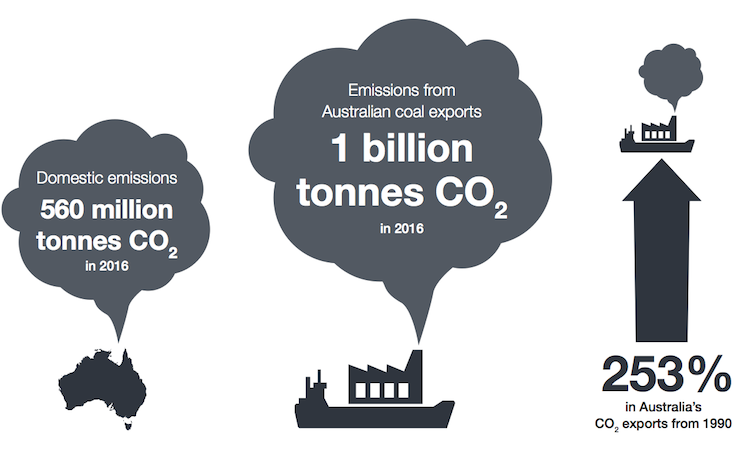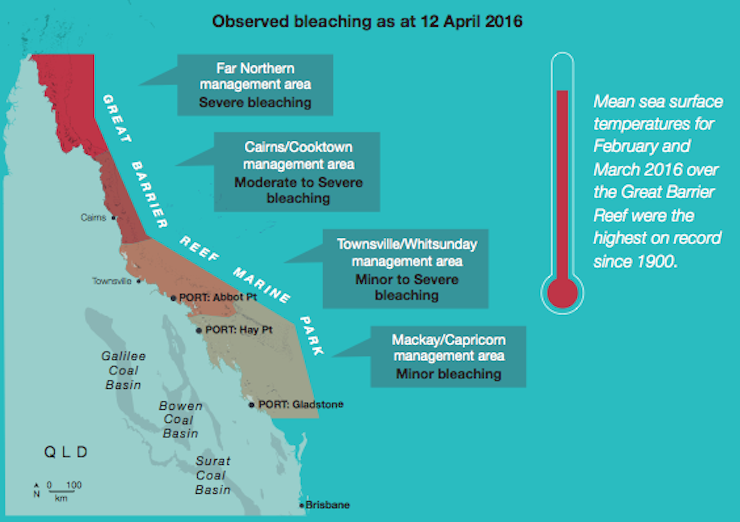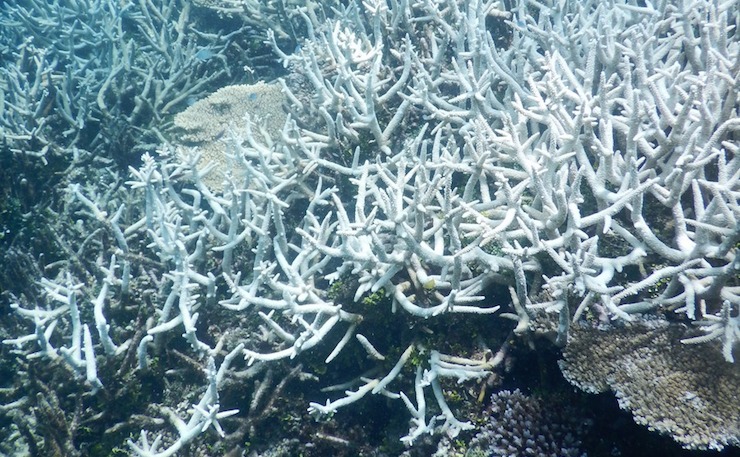On Friday the Australian Government will be in New York presenting itself as a world-leader in the race to reduce carbon emissions, at the official signing of the Paris agreement.
But on the eve of this historic hippodrome, Greenpeace Australia has released a new report which it says puts the lie to the Government’s posturing.
It notes that while Australia’s emissions have remained relatively stagnant since 1990, coal exports have exploded a staggering 253 per cent, and now represent almost twice as much carbon as total domestic emissions of carbon dioxide.
Greenpeace says that this year Australia will “export” one billion tonnes of carbon dioxide, through coal alone. That’s more than it plans to cut down through reducing domestic emissions using the Direct Action in the decade to 2030, according to the report.
It’s a carbon trade that the United Nations process takes no stock of: emissions are counted at the national level. Conversely, the fossil fuels nations export are treated as the responsibility of the importer country where they’re burned.
Greenpeace maintains that in reality – outside the United Nations Framework Convention on Climate Change – “Australia’s overall contribution to global climate change is getting worse, not better”.
The report argues Australia has taken advantage of the international framework around climate change by “growing its coal exports and disowning the consequences”.

“This has helped to suppress coal prices, making the dirtiest option more competitive for longer in electricity generation and in steelmaking.” And the iconic environmental group points out the government has no plans to stop.
According to government projections, coal exports will continue to grow nearly two thirds more by 2030. It’s an ambition this government, and the Labor governments before it, have made little secret of.
According to the Resources Minister, Josh Frydenberg: “Resources is to the Australian economy what the baggy green is to Australian sport: totemic; iconic; indispensable to our national story and synonymous with our national identity.”
But Greenpeace has pinned the dire straits afflicting the treasured Great Barrier Reef – which is currently undergoing the worst coral bleaching event in recorded history – squarely on the Government’s lapel.
“Australia is the world’s largest coal exporter and is avoiding responsibility for its contribution to global carbon emissions,” said Shani Tager, Greenpeace Australia Pacific’s climate and reef campaigner.
“By doing so, the Australian Government is ignoring the most serious threat to the Reef—climate change,” she said. “This isn’t a future threat, it’s one that is playing out right now before our eyes, with coral bleaching on 93 per cent of the Great Barrier Reef, and severe bleaching on the most pristine northern parts.”
The report said there were, at last count, 49 new coal projects “either publicly announced, or at the feasibility stage,” but it identified one in particular as a risk to the Reef: Adani’s Carmichael Coal Mine.

The report quotes the University of Queensland’s Prof. Justin Marshall: ”Given the globally accepted link between carbon emissions, climate change and reef bleaching, [Environment Minister Greg Hunt’s] decision to approve the Carmichael coal mine in Queensland right next to the Great Barrier Reef really is adding insult to injury.”
In contrast, Minister Frydenberg has championed the “strong moral case” to approve the mine, suggesting “it will help lift hundreds of millions of people out of energy poverty”. Overnight the United Nation’s top climate change diplomat, Christiana Figueres, who led the development of the Paris agreement, unequivocally refuted that line of argument.
“More carbon in the atmosphere equals more poverty. We cannot deliver sustainable development without tackling climate change, and we cannot tackle climate change without addressing the root causes of poverty, inequality and unsustainable development patterns,” Figueres said.
“There is no longer climate action and development action, only sustainable, low-carbon action.”
Donate To New Matilda
New Matilda is a small, independent media outlet. We survive through reader contributions, and never losing a lawsuit. If you got something from this article, giving something back helps us to continue speaking truth to power. Every little bit counts.




